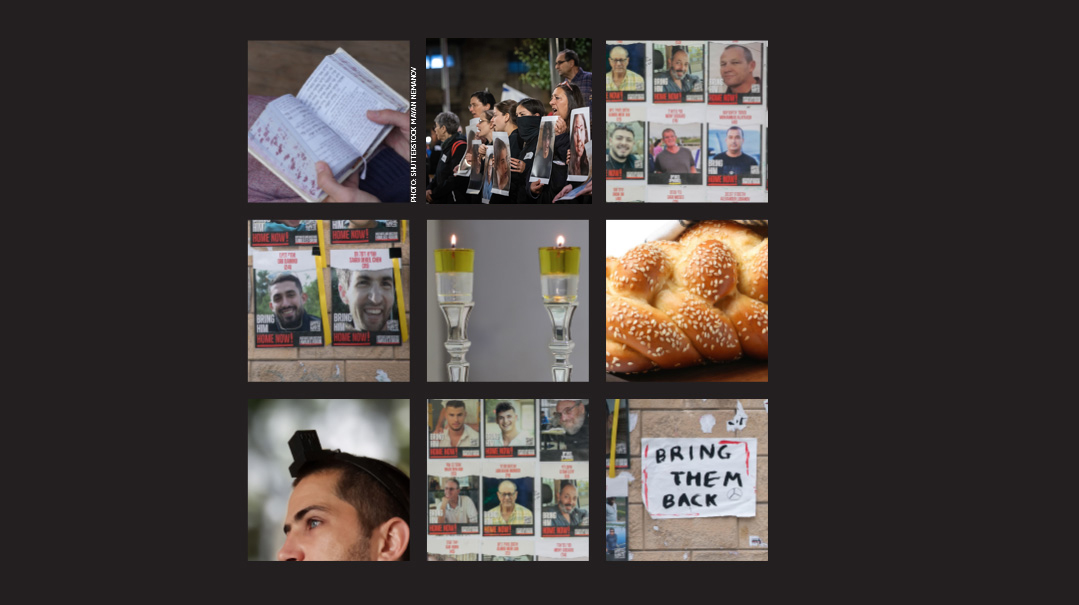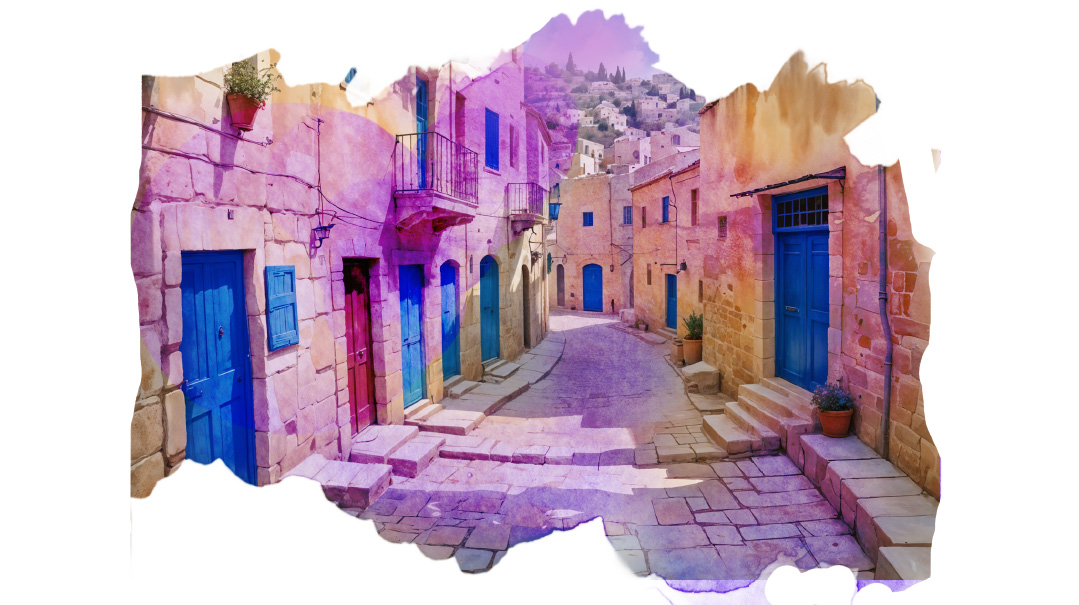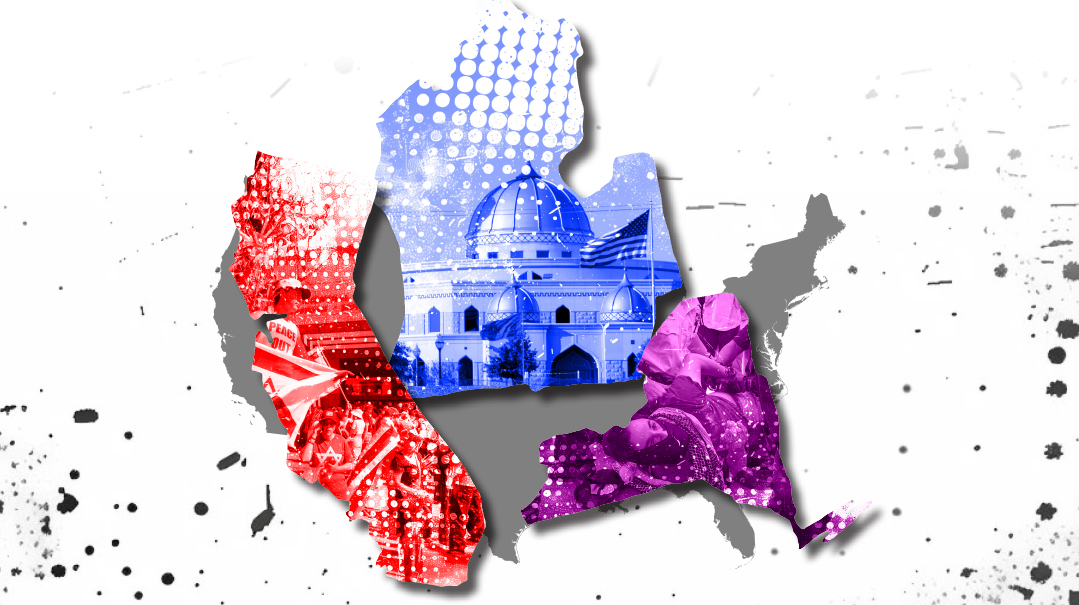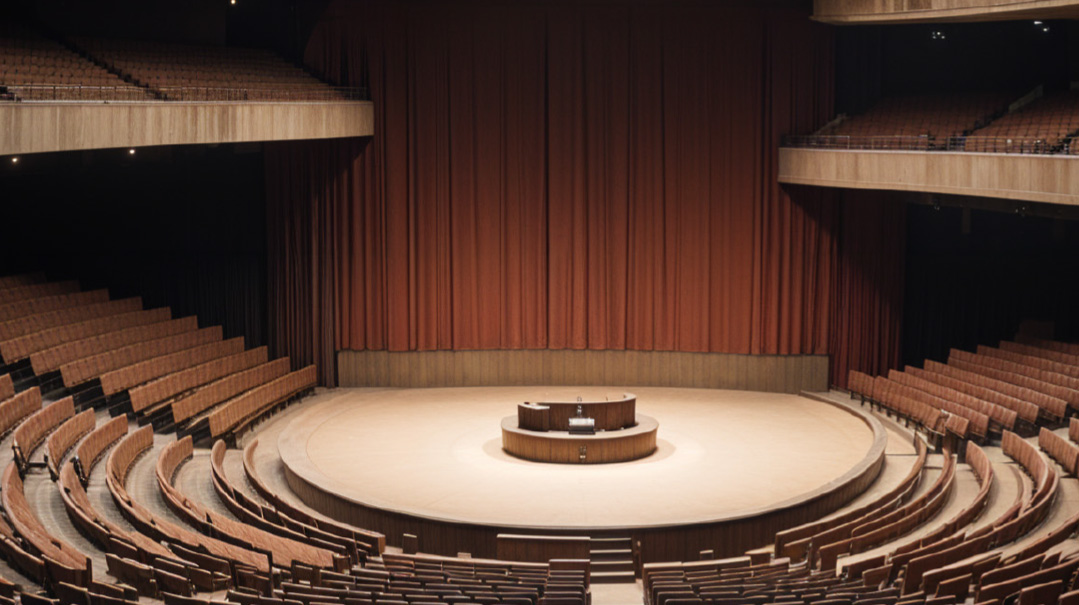The Strange Space in the Middle
| March 26, 2024Where is there space for what I want to say? What do I want to say? Who am I to say anything?
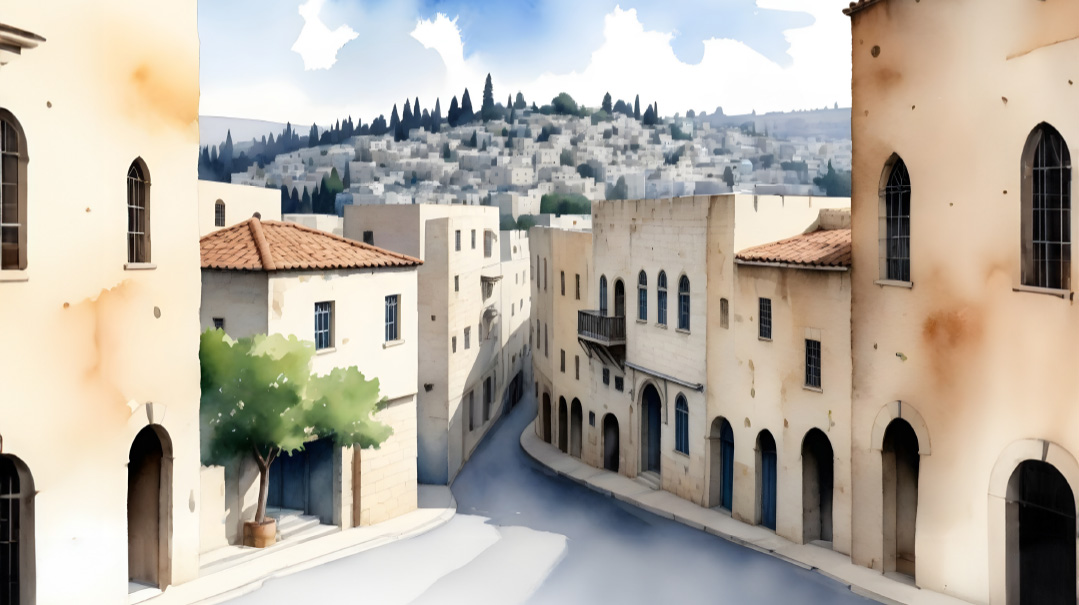
I
spend my days running PR for an incredible nonprofit, where I wax poetic that our important mission serving Klal Yisrael in “challenging, unprecedented times like these’” is “more important than ever.”
And my heart hurts, because Klal Yisrael is going through challenging, though unfortunately not unprecedented times.
But I’m a writer, and sentences and paragraph structures invade my thoughts all day. But by the time I collapse into bed, I’m too tired to write.
Besides, everything is taken. There are the political pontificators, the rabbis with tremendous daas Torah; the angry commentators on social media; the ones who spread hysteria, and the ones who dismiss it with a wave of their Shaar Bitachon (leather-bound, ArtScroll edition).
There are the news outlets that get paid to keep you checking, the “analysts,” and the IDF releasing statements that neither confirm nor deny.
Where is there space for what I want to say? What do I want to say? Who am I to say anything? I’m just a kollel wife living in Israel.
I was there. But not there, there. So I can’t speak for them. You know who they are.
But I’m also not in the US; there, reading the news, and seeing my non-Jewish neighbors become not-so-neighborly.
I’m in this strange space in the middle.
I’m just a kollel wife trying to navigate this insanity that began that fateful Shabbos/Simchas Torah morning.
My husband and I were puzzled when we heard the first siren, but we entered the safe room. Within minutes of my husband leaving to shul with my daughter, another siren pealed, and I knew this wasn’t normal. I ran into the safe room with my crying baby, and I cried with him. I begged Hashem to protect my husband and daughter because I didn’t know where they were, or if they were near a shelter. I cried with fear, but also with a faith I’d never known.
During our meal, another siren sent us into the kids’ room with our guests. I was embarrassed by the mess and then ashamed that I cared.
On the way to hakafos later, a friend said she hadn’t gone into her shelter, and I wondered if I’d overreacted. No one in shul knew anything, so after discussing rumors, it was the usual — how much nosh is too much, what did you do on Chol Hamoed?
It was all so strange.
Cars with soldiers kept driving by. Another car, siren wailing. A friend claimed it was recruiting reservists, that we were at war.
On Motzaei Shabbos, the news was worse than we’d imagined. I couldn’t sleep.
The next day was Sunday, a regular workday. How could I work when people were suffering? When my parents in the US and other Jews were keeping Yom Tov, celebrating the joy of Hashem’s embrace?
How could Hashem have just embraced us, and then allowed this?
People were sharing inspiration, but I couldn’t listen. I started to “catch up” on the news, which traumatized me enough not to look at the news since.
I took the kids out for some air, but I was terrified. I sat next to my neighbors, who seemed calm and happy, and I felt isolated in my fear.
I shared that it had been four hours since I’d checked the news.
“I haven’t seen any news at all,” a woman responded. “It’s still Yom Tov for me — I’m visiting from America.”
“How are you holding up?” I asked gently.
“We just want to go back home,” she said longingly, eyes welling with tears.
Her words pierced my heart. As an American, part of me wanted to leave, too. But not “back home.” This is my home.
The woman added that her daughter in seminary would return with them “until things settle down.” No one was swooping my family and friends out of this nightmare “until things settle down.”
A woman nearby gathered her kids, saying, “I heard there’s going to be an attack in fifteen minutes.” Heart racing, I ran home as well. Baruch Hashem, nothing happened, but the misinformation was terrifying.
The next day, my husband went to yeshivah although zeman hadn’t started, and because school was canceled, I was Gan Mommy while working from home.
And so began daily life.
Lock the doors and fasten the bolt. Remind myself how far away Gaza is.
The sound of the siren and the fear that it would sound.
The friend in America who didn’t order takeout in solidarity, when restaurants were the last thing on my mind.
The one who didn’t cancel Disney because “it doesn’t help anyone in Israel if we don’t have a nice time.”
The pain and anguish of those directly affected.
The strange space in the middle.
And then, a shooting on our street. Heart pounding, tefillos pouring until my husband stepped safely inside (it was a false alarm). Guilt for other wives with the same fear but not the same ending.
Noises one night. Locking the door and receiving a red alert to enter the safe room immediately. With no accompanying siren, I frenetically concluded Hamas terrorists were infiltrating.
I slammed our kids’ room door closed, sitting in pitch dark while they slept, shaking and waiting. Nothing.
The app announced it was safe to exit. I waited ten minutes before creeping out of the room, terrified of what I’d find. No one was there. “False alarm,” the app pinged. I deleted the app.
Finally, I began to connect. Shiurim from gedolim. Daven, they said. Send your husband to learn. Keep your kids calm.
Slowly, I found tools to cope, explain the sirens to my daughter, and teach her — and myself — emunah.
I grappled with how a morah could get seven children under the stairs in less than two minutes, then let go of the belief that only I could protect my kids. I sent them to school, and I went back to work.
Life started to feel normal. On days when winter is unseasonably warm, it’s hard to connect to a five-month-old war when the sky is a perfect blue.
And then the anguished cry of a hostage’s mother crosses my screen, and I freeze. Is my daily Tehillim for the captives, if I even remember to say it, enough? How could anything I do possibly be enough?
Yet as Day 150 of this living hell comes to pass, I realize I wasn’t there, or in the US-there; I was here. And this strange space in the middle is where Hashem wants me to be.
Finding connection, grappling with it. Pushing myself when there aren’t 50,000 women taking challah, when I feel I’m alone.
Because even as Klal Yisrael unites, no one fully understands what others went through. How one of us can’t sleep while the other never even entered a bomb shelter. And it’s not about that, either.
In “times like these,” no matter what space I find myself in, it’s mine, and it’s “more important than ever” that I utilize it well.
(Originally featured in Family First, Issue 887)
Oops! We could not locate your form.

